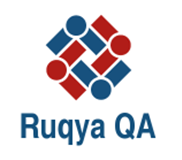It is permissible to charge for ruqya?
In essence, there is nothing wrong with charging or receiving a payment for ruqya that is performed in the correct way. Here are some proofs for this:
Shaykh Ibn Baaz (may Allaah have mercy on him) was asked: We heard of some people who treat others by means of the Qur’aan; they recite Qur’aan and du’aa’s that are prescribed in sharee’ah over water or olive oil as a remedy for witchcraft, the evil eye and madness (the touch of the shaytaan), and they receive payment for that. Is this permissible according to sharee’ah? Does reciting over water or olive oil come under the same ruling as reciting over the sick person himself?
He replied:
There is nothing wrong with receiving payment for reciting ruqyah for one who is sick, because it is proven in al-Saheehayn that a group of the Companions of the Prophet (peace and blessings of Allaah be upon him) set out on a journey and travelled until they made came near one of the Arab tribes. (These people were either kaafirs or very stingy, as Ibn al-Qayyim mentioned in al-Madaarij). They asked them for hospitality but they refused to do so. Then the leader of that tribe was stung, and they tried everything but nothing helped him. Then some of them said, Why don’t you go to those people who are staying (nearby)? Maybe some of them have something. So they went to them and said, O people, our leader has been stung and we have tried everything and nothing helped him. Do any of you have something? One of them said, Yes, by Allaah. I will perform ruqyah for him, but by Allaah we asked you for hospitality and you did not give us anything, so we will not perform ruqyah for you unless you give us something in return. So they agreed on a flock of sheep, then he started to blow on him and recite Al-hamdu Lillaahi Rabb il-‘Aalameen. Then he recovered quickly from his complaint and started walking, and there was nothing wrong with him. Then they have them what they had agreed to, and some of them (the Sahaabah) said, Let us share it out. The one who had performed ruqyah said, Do not do anything until we come to the Prophet (peace and blessings of Allaah be upon him) and tell him what happened, and we will wait and see what he tells us to do. So they came to the Messenger of Allaah (peace and blessings of Allaah be upon him) and told him what had happened. He said, “How did you know that it is a ruqyah?” Then he said, “You did the right thing.”
Narrated by al-Bukhaari (2115) and Muslim(4080).
Majmoo’ Fataawa Ibn Baaz (19/338).
The scholars of the Standing Committee were asked about a man who performed ruqyah for people in return for payment, and he did not know anything but that which was proven from the Prophet (peace and blessings of Allaah be upon him), and he referred to the books of trustworthy scholars concerning that.
They replied:
If the situation is as you describe and you treat the sick with ruqyahs that are prescribed in sharee’ah, and you do not recite any ruqyahs except those that are proven from the Prophet (peace and blessings of Allaah be upon him), and you are keen to refer concerning that to that which was stated by the great scholar Ibn Taymiyah (may Allaah have mercy on him) in his well known books, and what was written by the great scholar Ibn Qayyim al-Jawziyyah (may Allaah have mercy on him) in Zaad al-Ma’aad and other similar books by Ahl al-Sunnah wa’l-Jamaa’ah, then you work is permissible, and your efforts are appreciated and will be rewarded in sha Allaah. And there is nothing wrong with you receiving payment for that, because of the hadeeth of Abu Sa’eed al-Khudri (may Allaah be pleased with him) to which you referred in your question. End quote.
The hadeeth of Abu Sa’eed al-Khudri is the hadeeth mentioned above, about reciting al-Faatihah as a ruqyah for the man who had been stung by a scorpion.
However, the issues arise when raqis begin to charge extortionate rates to people who are suffering. This often leads to more difficulties and stress, particularly if the raqi insists on “block booking” – an innovated and incorrect practice where a number of sessions are all booked at once. As a rough guide, paying between £20 – £40 per session is what is “normal” and reasonable. Obviously if the raqi is traveling a long way then it may be more than this to cover fuel costs etc. Beware of those who try to take advantage and charge unreasonable rates; for example £150 per hour. This is ridiculous and such con men should fear Allah.
No doubt, not charging is best. It is also not known from the salaf (the righteous predecessors) that they made ruqya a full time job, therefore the raqi should have another occupation. As with all fields, beware of fraudsters who are only in it for the money; unfortunately some people have spotted that ruqya is a growing market and have started taking advantage of the desperation of the one who is suffering.
Also, beware of the person who charges “per hour” rather than per session.
